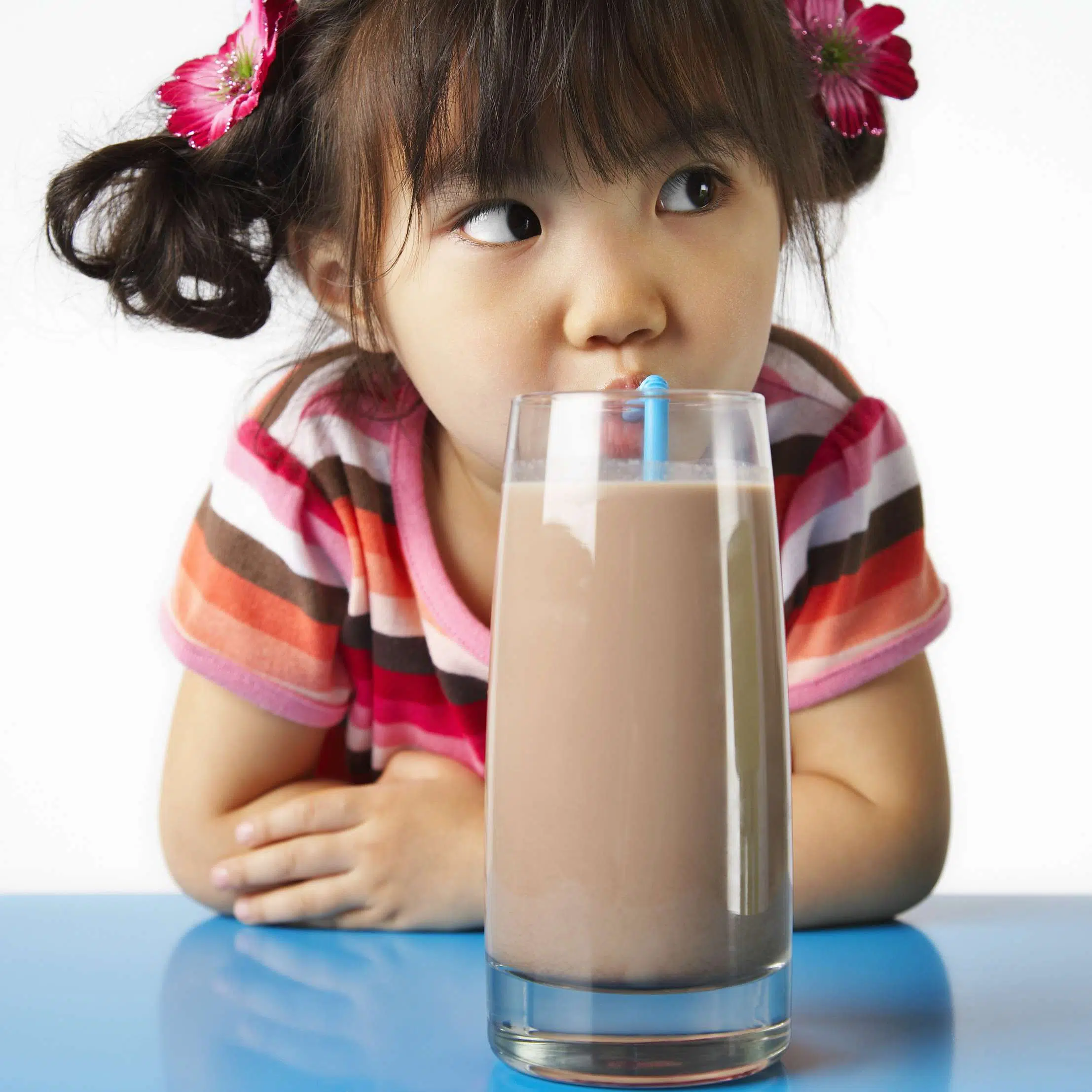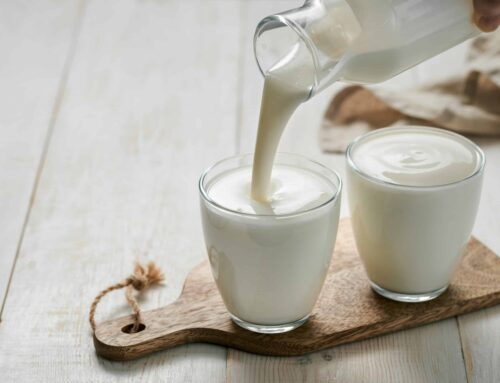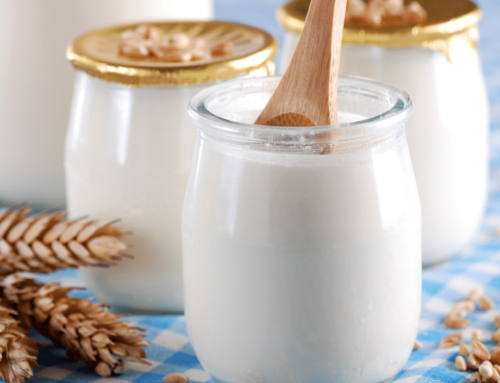Over the past several years, drinkable yoghurt has made its way into the habits of Western consumers, particularly in Europe. This dairy product changes as the trends do: taste, texture and ingredients must be continually adapted to stay current. Drinkable yoghurts are now conquering new territory where they are being adapted to different socio-cultural situations. Where are we now? And what will the drinkable yoghurts of tomorrow look like?

What are the advantages and characteristics of drinkable yoghurt?
What sets drinkable yoghurt apart is that it is a portable food item. It is easy to transport in a small bottle or carton. You can enjoy drinkable yoghurt at breakfast, snack time or as a dessert after a sandwich at the office.
Manufacturers used to target essentially children and teens. Drinkable yoghurts have been and continue to be very convenient for making growing young people drink milk.
Today, adults also consume drinkable yoghurt. This product is an excellent addition to a healthy, athletic or urban lifestyle that requires both portable and nutritious food items. A child can take one in their backpack, an adult in their briefcase or a jogger in their gym bag.
What are the current trends in drinkable yoghurt?
This dairy product has also been growing worldwide. China, Brazil and Kenya are top consumers of drinkable yoghurt. We consumed 11.1 billion litres of drinkable yoghurt in 2020. This popularity on the market is due to several reasons:
- cultural (the Chinese, for example, traditionally prefer liquid yoghurt)
- health, particularly in countries in Africa and South America where dairy products are part of educating consumers on a healthy lifestyle
- economic, with major brands breaking into the market in emerging countries.
In some countries like Brazil, the cold chain is often interrupted, so dairy products that can be kept at room temperature are preferable. Thermised drinkable yoghurts are a more accessible source of calcium than cheese, set and stirred yoghurts, fromage blanc, etc.
It is clear why major international brands are innovating with this product.
There have always been a variety of flavours such as plain and strawberry, and now the options are practically infinite (raspberry, vanilla, peach, chocolate, even cookie, speculoos and coconut!) as the product adapts to more and more consumer profiles.
However, to respond to this popularity, drinkable yoghurts need to prove that they are good for your health.
Is drinkable yoghurt good for your health?
The success of drinkable yoghurt on all continents, particularly in the southern hemisphere, is also due to its nutritional benefits.
Drinkable yoghurt has a good taste and creamy and fluid texture. And, most importantly, it has the same nutritional benefits as other types of yoghurt:
- rich in protein
- rich in vitamins
- rich in minerals, especially calcium
- low fat content.
A yoghurt provides a significant amount of the daily calcium needed by a healthy adult.
According to the ANSES, the daily recommended value is 950 mg/day, which is approximately two or three dairy products. Calcium is good for bone health. Pregnant or nursing women, children, adolescents and seniors have greater calcium needs, as they need to build, strengthen or regenerate their skeletal system.
These are all excellent reasons to promote drinkable yoghurt, which is transportable and consumable at any time of the day or night.
How can you make a drinkable yoghurt that fits new market trends in natural foods and health?
Drinkable yoghurt needs to be adapted to consumer expectations. Consumers are more and more attentive to ingredients, particularly if they have a healthy, athletic lifestyle.
A Clean Label approach will convince demanding consumers. But how can you bring together natural ingredients, taste and creaminess? How can you get all the functions of taste and texture without additives?

Milk proteins are the solution.
Promilk® Yogfluid is a milk protein specifically designed for the liquid yoghurt market and rich in protein. It makes creamy and fluid products with a good natural dairy taste. It is perfect for producing drinkable yoghurt without added sugar.
Milk proteins are the secret for producing the drinkable yoghurt of tomorrow!


